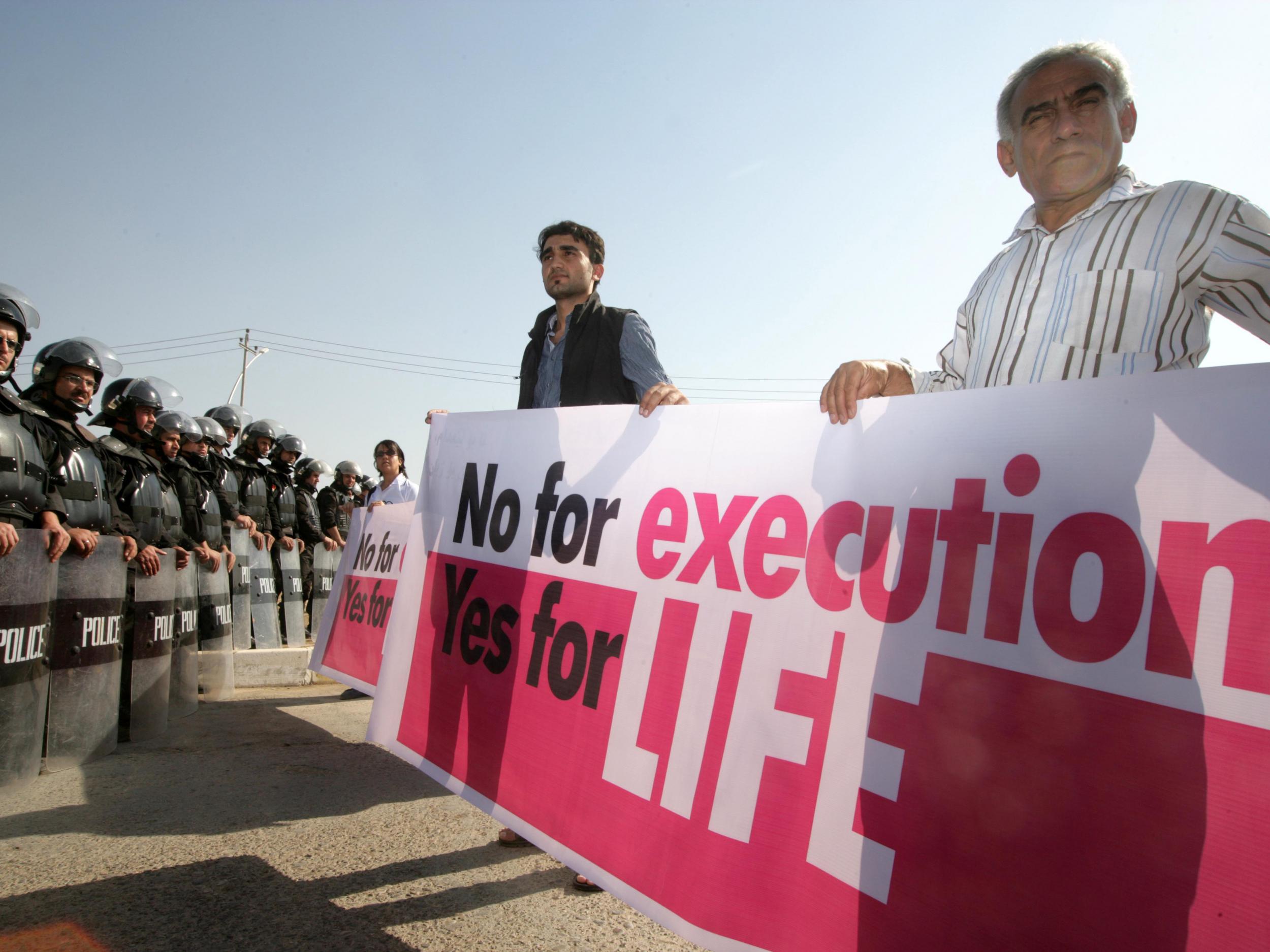Iran's justice minister calls for fewer executions and changes to death penalty laws
Around 1000 people were executed in Iran last year according to a UN report

Your support helps us to tell the story
From reproductive rights to climate change to Big Tech, The Independent is on the ground when the story is developing. Whether it's investigating the financials of Elon Musk's pro-Trump PAC or producing our latest documentary, 'The A Word', which shines a light on the American women fighting for reproductive rights, we know how important it is to parse out the facts from the messaging.
At such a critical moment in US history, we need reporters on the ground. Your donation allows us to keep sending journalists to speak to both sides of the story.
The Independent is trusted by Americans across the entire political spectrum. And unlike many other quality news outlets, we choose not to lock Americans out of our reporting and analysis with paywalls. We believe quality journalism should be available to everyone, paid for by those who can afford it.
Your support makes all the difference.Iran’s justice minister has said the country should execute fewer people and revise its death penalty laws, local media reports.
“These last years, the quantity of executions has not been effective. As a result, there must be a revision of the death penalty law,” said Mostafa Pourmohammadi, AFP reports citing Tasnim news agency.
“The judiciary as a whole shared this opinion,” he added.
Mr Pourmohammadi called for “alternative penalties”, but said it was impossible to abolish capital punishment all together because “there are corrupt people in the country for whom there is no alternative to execution.”
Around 1000 people were executed in Iran last year, according to a report from the United Nations investigator Ahmed Shaheed. The unofficial number is believed to be higher.
It said execution rates peaked between April and June, resulting in an average of four executions a day during that time period.
Convictions for murder, rape, armed robbery and adultery can all carry the death penalty in Iran, but a large majority of executions are linked to drug trafficking.
Iran’s justice system is based on Sharia law, which does not make capital punishment compulsory for drug crimes.
The deputy head of the judiciary, Mohammad Bagher Olfat, said in August the death penalty had not had a “dissuasive effect” on drug trafficking through Iran, which is one of the main routes from Afghan heroin heading for Europe.
“Sadly, the volume of trafficking, its diversity and the number of people involved have all increased,” he told Tasnim.
A bill to revise the use of capital punishment has been put before parliament – one of the first since elections this year reduced the number of conservative MPs – but it has not yet been discussed.
Human Rights Watch says that although "Iran elected a moderate candidate, Hassan Rouhani, to be president in 2013, the country has seen no significant improvements in human rights".
In August, the UN High Commissioner for Human Rights condemned the hanging of 20 people in Iran in one week for alleged terrorism-related offences, claiming a “grave injustice” had been done by the country’s judicial system.
Zeid Ra'ad Al Hussein said in a statement received by The Independent that there were “serious doubts about the fairness of the trials, respect for due process and other rights of the accused”, most of whom were believed to be Sunni Muslims from the Kurdish community.
On 2 January, 47 people were put to death in the country after they were convicted of terrorist offences. They included a prominent Shia cleric, Sheikh Nimr al-Nimr, whose death sparked international condemnation.
In 2012, the UN General Assembly called on countries to establish a moratorium on the use of the death penalty, to reduce the practice with the view toward its eventual abolition.
Join our commenting forum
Join thought-provoking conversations, follow other Independent readers and see their replies
Comments